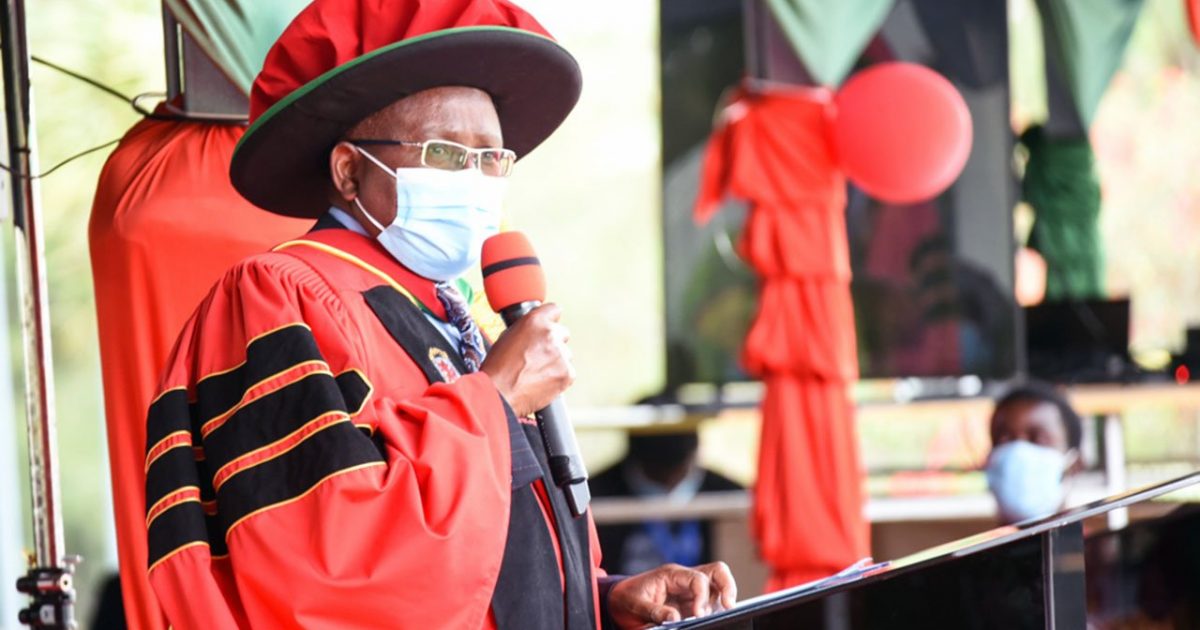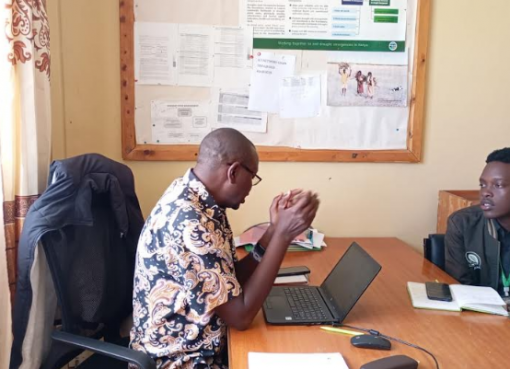Kenyan businesses have to continuously bank on innovations and embrace technology to navigate through shocks sparked by climate change, Covid-19 pandemic and dwindling natural resources.
Egerton University Vice Chancellor Prof. Isaac Kibwage noted that the country’s industry segment had demonstrated its potential to innovate at the peak of the scourge as inventors provided local solutions to a global pandemic by fabricating ventilators, Intensive Care Unit beds, face masks, testing booths and Personal Protective Equipment among other products.
Prof. Kibwage outlined encouraging development of more strategic innovations on some sort of thematic areas including health systems, food systems, climate change, resource use and waste management as examples that would help the economy bounce back stronger and better.
“Every crisis presents opportunities and space for creative disruption. Covid-19, for instance, yielded homemade innovative solutions not only for health, but also for areas such as remote work, distance education, e-commerce and mobility solutions. By supporting these positive forces, we will achieve numerous societal goals including reducing or reversing long-term climate change through adoption of green technologies,” the Vice Chancellor pointed out.
While inaugurating the University’s 14th International Biennial Conference at Kilimo Hall within the institution’s Njoro Main Campus, Prof. Kibwage observed that climate change, Covid-19 pandemic, among other calamities should not slow down Kenya’s pace of producing innovative products and ideas, but should instead serve to accelerate them in order for humanity to build its capacity in mitigating and managing future crises better.
He challenged both the public and private sectors to reinvent their activities and come up with innovative solutions that will not only move their businesses to the next level but also help them tap into the opportunities that lie waiting within climate adaptation as well as mitigation.
“New and tested technologies are critical in cutting down greenhouse gas emissions and enabling mankind to adapt to the now clear changes in the climate. Whereas it may seem to be costly, sustained investment in climate-smart innovations has an overall low cost and will be needed to meet global climate goals,” stated the Vice Chancellor.
He indicated that to grow the manufacturing sector, there is a need to have a workforce with the knowledge and skills to implement the relevant technologies. The level of automation, he added, must be increased, and appropriate technical skills must be developed in this time of innovation and adaption.
“In the next few years, skill set strategy will be vital in driving agility and efficiency in Kenya. The world is transiting into a digital era hence firms must align their operations with this new era of online agility through supporting digital innovation and literacy. Change may happen slowly, but it is inevitable nevertheless to remain afloat,” explained Prof. Kibwage.
The conference which is being held virtually via Zoom is jointly organised by National Research Fund Kenya (NRF), Centre for Transforming African Agricultural Universities to Meaningfully Contribute to Africa’s Growth and Development (TAGDev), The Centre of Excellence in Sustainable Agriculture and Agribusiness Management (CESAAM), Centre of Excellence for Livestock Innovation and Business (ELIB) and Corteva Agriscience.
During the event themed ‘Research and Innovation in a Changing Environment’ the Vice Chancellor observed that like many countries in sub-Saharan Africa, Kenya has been experiencing extreme weather, including floods, lake backflows and drought.
“Climate is what makes us survive, and any threat to it means a threat to our very existence. The three broad areas of focus at the conference will be increasing investments in renewable sources of energy, Green Manufacturing and curtailing deforestation,” said Professor Kibwage.
He described ‘Green Manufacturing’ as an industrial procedure where employees utilise fewer natural resources, produce less pollution and waste, recycle and reuse materials, and moderate emissions in their processes.
“Green manufacturers do research, develop, or implement technology and procedures that reduce their environmental effect. Africa has the greatest potential to succeed in green manufacturing since the continent is yet to build Greenhouse Gas-emitting industries,” the Vice Chancellor explained.
He however said innovators have been facing challenges including inadequate capital, limited market access and bureaucratic regulatory environment that stifle their activities.
“Innovation gaps exist across many key sectors of the economy. This is largely due to a lack of incentive among innovators and organizations owing to an underdeveloped ecosystem coupled with capital access constraints. This is especially true in the field of clean technology such as sustainable food production and supply chain, recycling (water and waste management), commercial forestry and low-carbon transportation,” he said.
He called on various state actors to come up with friendly policies, incentives and partnerships so as to create an enabling climate for private sector-led innovations to flourish during and after the Covid-19 pandemic.
By Anne Mwale





